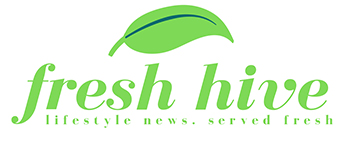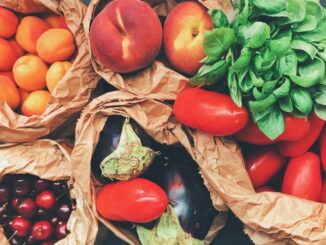
The COVID-19 pandemic is an awkward time to propose exiting food banks as a response to widespread food insecurity. Food bank use, after all, is surging.
However, research has long shown that feeding surplus food to those left behind in wealthy, food-secure Canada is ineffective, inequitable and an affront to human dignity.
In a democratic society that values tolerance, equity and human rights, food banks are symbols of public policy neglect. They enable indifferent governments to ignore the moral crisis of domestic hunger.
In 2012, the United Nations Special Rapporteur on the Right to Food, Olivier De Schutter, reminded Ottawa that “reliance on food banks served as a moral release valve for the state.” It “was symptomatic of the need to step up social protection systems to align them with the increased cost of living.”
He was sent packing by members of former prime minister Stephen Harper’s cabinet. Harper’s health minister at the time, Leona Aglukkaq, called De Schutter “ill-informed” and “patronizing” while Jason Kenney, then the immigration minister, dismissed him as “completely ridiculous.”
Now in 2020, looking beyond COVID-19, Prime Minister Justin Trudeau promises no one will be left behind.
Millions of Canadians are food-insecure
Pre-pandemic, 4.4 million Canadians, not including the homeless and Indigenous Peoples living on First Nations, were residing in food-insecure households due to financial constraints, the highest estimate yet recorded by Statistics Canada’s biannual Canadian Community Health Survey.
Food insecurity is an ongoing national emergency “most prevalent among households with low incomes, those who rent … and those who identify as Indigenous and Black.” Interwoven with poverty, housing and labour market conditions, food insecurity is an income problem, not a food distribution issue.
Food is a basic human need essential to nutrition, health, social well-being and to life itself. It is a public good and a fundamental human right, according to the United Nations, that was long ago recognized and ratified by Canada. This is important because under international law, Ottawa and provincial and territorial governments are the “primary duty bearers” to ensure citizens can claim their right to food.
Economic access to food and being able to purchase food with choice and dignity is also central to the right to an adequate standard of living through living wages, social security and fair income distribution.
Food as an income right can be claimed; surplus food charity cannot. Yet food banks are now normalized. Tolerance of food banks has become indifference.
Mirrors the early 1980s
The economic hit of the COVID-19 pandemic mirrors the deep recession and double-digit unemployment of the early 1980s. Under-funded unemployment insurance and social assistance gave way to imported, American-style food banks that propped up Canada’s fraying social safety net.
Governments looked away. Poverty and hunger were privatized and downloaded to food charities as the federal-provincial cost-shared Canada Assistance Plan, in place from 1966 to 1996, was replaced by sporadic funding, social spending cuts and punitive welfare reforms — again, in lockstep with the United States.
In 1987, the Canadian Association of Food Banks — today’s Food Banks Canada — heralded a new, parallel food charity economy. Private sector food surpluses provided to food banks became the norm.
Partnering with the Chicago-based Global Foodbanking Network, Food Banks Canada promotes the corporate myth that surplus food is a “win-win” for reducing both food waste and food insecurity. Yet food banks receive very little of Canada’s edible food loss waste, while only one in five severely food-insecure households seek the assistance of food banks.
Beyond COVID-19, if food waste does not provide a solution and no one is to be left behind, how to proceed? Trudeau’s 2015 election commitment to evidence-based public policy springs to mind.
It’s about income, not food supply
Ottawa and provincial and territorial governments must own and act on their national public health data that food insecurity is an income problem, not a food problem. COVID-19 makes this reality abundantly clear.
Nationwide, COVID-19 has produced a spike from 10.5 per cent to 14.6 cent of the number of Canadian households reporting they’re food-insecure.
Unsurprisingly, the key public policy pandemic response is income-based. The Canada Emergency Response Benefit has to date gone to 8.7 million people at a cost of $72.5 billion. An additional $37 billion is now being allocated to the CERB transition plan and for the establishment of new sickness and care benefits.
The adequacy of workplace benefits will be critical given that pre-pandemic, 65 per cent of food-insecure households relied on employment income, according to federal food insecurity data.
Those who face the biggest challenges, however, are Canadians ineligible for the new EI/CERB benefits, including the two million currently dependent on provincial social assistance. National data also shows even before the pandemic struck, 60 per cent of social assistance households were already food-insecure.
Provincial governments need to act on income security. Failing this, Ottawa may well extend its leftover food plan by increasing the $100 million COVID-19 grant to Food Banks Canada and the Surplus Food Rescue Program. If so, those left behind will remain beholden to corporate charity and the food bank/food waste myth that masks the deep fault lines in our welfare state.
A Basic Income is required
An adequate, indexed Basic Income is the way ahead, coupled with significant investment in rebuilding Canada’s social safety net to provide accessible, universal basic services, including national school meals, affordable housing, child care, early childhood education, mental health programs, education and employment training, to name just a few.
Guaranteeing the food sovereignty of Indigenous peoples is likewise a public policy imperative that would be strengthened, as in British Columbia, by enshrining the Universal Declaration on the Rights of Indigenous Peoples into federal law.
Regardless of whether Canadians in need receive a basic income via grant, a negative income tax or refundable tax credit, the priority must be social inclusion and poverty reduction, with ending food insecurity a specific public policy outcome. The end of food banks must be a required measure of its efficiency and success.
Beyond COVID-19, we should no longer tolerate the inequities of corporate charity and the stigma associated with relying on society’s leftovers for those in need. It’s long past time to reframe food insecurity as a matter of income security, and to ensure public policy is developed with human rights in mind.
As Louise Arbour, a former Supreme Court Justice and UN Human Rights Commissioner, has commented:
“There will always be a place for charity, but charitable responses are not an effective, principled or sustainable substitute for enforceable human rights guarantees.”
By Graham Riches
Emeritus Professor of Social Work, University of British Columbia





